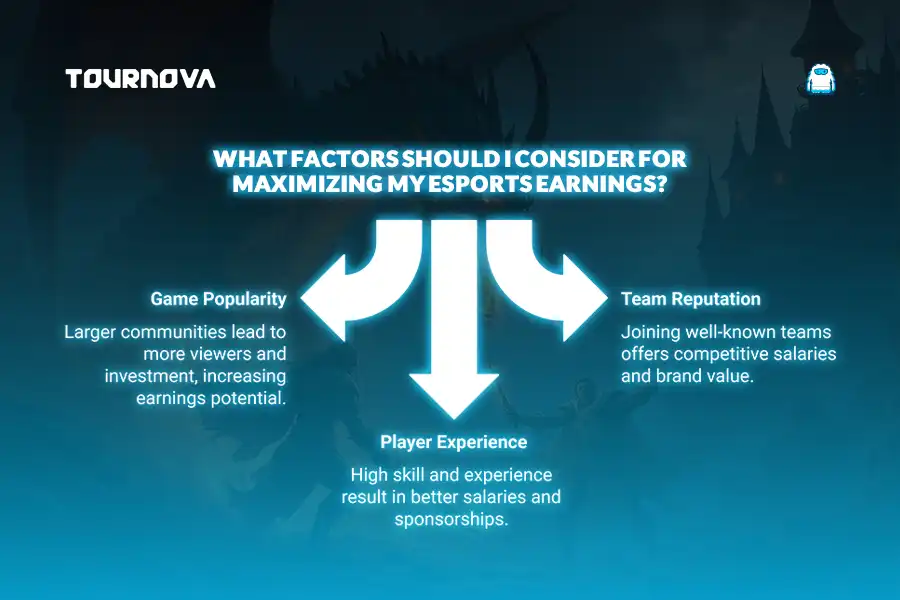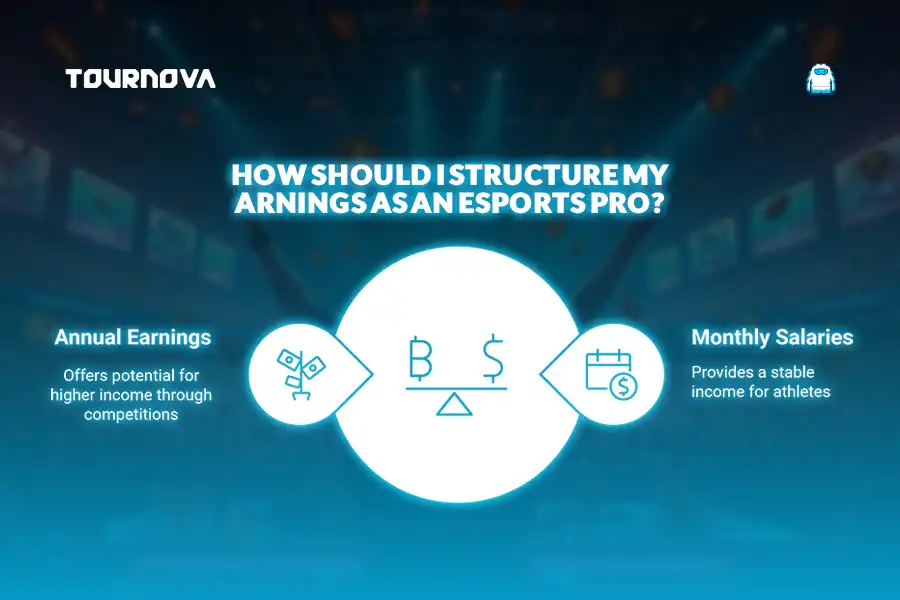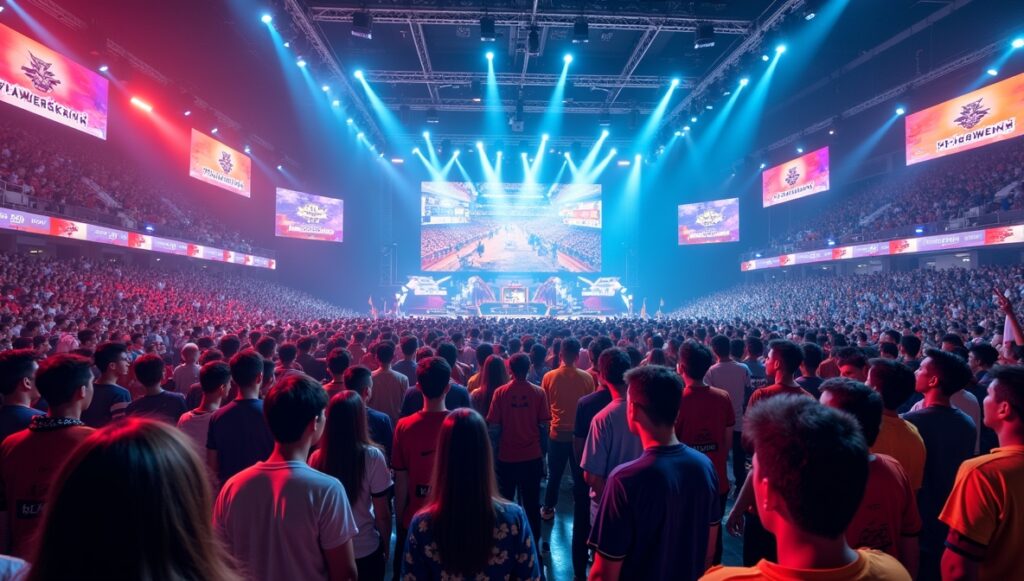In the world of esports, the allure of fame and fortune draws countless players to the digital battlefield. Yet, many aspiring gamers face a daunting question: how much do esports players actually make? The path to becoming a professional gamer is fraught with challenges, from intense competition to income uncertainty. For many, the dream of turning a passion for gaming into a lucrative career seems elusive.
But fear not, as we delve into the intricacies of how much do esports players make, uncovering the factors that influence earnings and offering insights into this dynamic industry.

Breaking Down eSports Player Salaries: Factors That Influence Earnings
Esports is an emerging industry where players’ remuneration depends on numerous factors associated with the business. Primarily, one factor that characterizes game popularity is the size of the community. For instance, games like Dota 2 and League of Legends have massive global communities, which means players can earn more. These games tend to be more profitable for players because the more people know about them, the more viewers they attract, and companies are willing to invest more in endorsements.

Player experience and skill level also play significant roles. Consider Lee “Faker” Sang-hyeok, one of the greatest players in League of Legends esports. His experience and performance have not only secured him a good salary but also numerous sponsorships and endorsement deals. Similarly, Dota 2 player Johan “N0tail” Sundstein has earned substantial amounts of money through his skills and leadership as the captain of his team, OG, during various International championships.
The relationship between a team’s reputation and a player’s earnings is also significant talking about how much do esports players make. Players affiliated with well-known branded teams, such as Team Liquid or Cloud9, can expect to earn larger salaries because these teams generate brand value and attract sponsorships. Such teams are capable of offering competitive salaries and additional improvements, making them attractive to more skilled players.
Sponsorships & Brand Deals: How Esports Players Make Bank
Endorsements and sponsorships play a crucial role in elevating a player to the next income-generating level beyond wins in games. For instance, top Fortnite player Tyler “Ninja” Blevins has collaborated with popular brands like Red Bull and Adidas. These relationships not only provide monetary support but also enhance the visibility of his brand, helping him reach a broader audience.
Endorsements can extend from simple merchandising and equipment agreements to sought-after rights deals for streaming services. Some players engage in paid partnerships with companies that manufacture and produce gaming equipment, such as headsets, keyboards, and gaming chairs. These endorsements are mutually beneficial, as they offer players additional income while providing brands access to a dedicated audience of enthusiasts.

Top-Paying Esports Games in 2025
Certain esports titles are synonymous with high earnings due to their competitive nature and large prize pools discussing how much do esports players make. Dota 2, for instance, is renowned for its annual tournament, The International, which boasts prize pools exceeding $40 million. This event alone can catapult players into millionaire status, as seen with teams like OG, who have won multiple championships.
League of Legends offers a different model with its structured league system, providing players with consistent salaries and bonuses based on performance. The League of Legends World Championship is another high-stakes event, drawing millions of viewers and offering substantial financial rewards.
CS2, with its numerous tournaments and strong community support, ranks among the top-paying esports titles. The game’s competitive scene is vibrant, featuring events like the ESL Pro League and Intel Extreme Masters, which offer significant prize money and exposure for players.

Monthly vs. Annual Pay: What Pro Gamers Can Expect
Understanding the difference between monthly and annual salaries is crucial for aspiring esports professionals. Monthly salaries provide a stable income, allowing players to focus on training and competition without financial stress. These salaries can vary widely, with top-tier players earning upwards of $15,000 per month while entry-level players might earn significantly less.
Annual earnings, however, are often bolstered by tournament winnings and sponsorship deals. For example, a player might earn a base salary of 100,000 annually, but with successful tournament performances and sponsorships, their total earnings could exceed 500,000. This variability highlights the importance of strategic planning and financial management for players looking to maximize their income.
How Much Do Esports Coaches, Analysts & Casters Earn?
An ecosystem is formed to help represent the esports scene regarding how much esports players make, which includes individuals beyond the players. For instance, coaches play a crucial role in enhancing team performance by focusing on strategizing and nurturing the players. Coaches like Danny “Zonic” Sørensen, who has led Astralis to multiple CS: GO championships, receive attractive wages and incentives based on the team’s results and outcomes.

Specialists who analyze gameplay and its parameters and then share their observations with others are becoming more appreciated in the field. This is important for teams since they assist groups in enhancing strategies and increasing the general effectiveness of a team. Casters, performers of esports events, make the atmosphere on the screen as bright as the game is in real life. Event organizers are willing to pay large sums of money to well-known casters, and since many are esports fans themselves, big names such as Eefje “Sjokz” Depoortere have become equally popular among gamers.
Esports Salaries by Country: Who Earns the Most?
Esports is recognized internationally, and remuneration differs by country. North America and Europe are rewarded with better salaries because of large sponsorships and a more developed esports ecosystem. That is why Southeast Asia and Latin America have lesser-paying players, yet the performance of those areas is rapidly improving as players have new opportunities.
South Korea has a well-developed esports community, and players are more active in games such as StarCraft II and League of Legends. South Korean players receive many accommodations from their teams, including housing and training facilities, which can lead to reduced base salaries. Understanding these regional differences is crucial for players, especially those considering an international move or career, as it affects their remuneration and potential for skill progression.
Can You Go Pro? How Beginners Can Start Earning in Esports
For beginners on how much do esports players make, entering the esports scene requires realistic expectations about income and career progression. Entry-level salaries may be modest, but the potential for growth is significant with dedication and skill development. Aspiring players should focus on building their reputation, participating in smaller tournaments, and engaging with the community to increase their visibility. Networking and continuous improvement are key to advancing in this competitive field.

How Long Can Pros Stay at the Top?
The lifespan of an esports career can be relatively short, with many players peaking in their early twenties. However, career longevity is possible through diversification. Players can transition into coaching, streaming, or content creation, leveraging their expertise and fan base. Post-retirement, opportunities in game development, esports management, and entrepreneurship provide avenues for continued income and involvement in the industry.
Read More: How Much Can You Make in Dota 2?
In Conclusion
Navigating the world of esports salaries reveals a complex tapestry of opportunities and challenges considering how much do esports players make. From the influence of game popularity and sponsorships to regional differences and career longevity, understanding these factors is essential for anyone aspiring to make a living in esports. As the industry continues to evolve, so too do the possibilities for players and professionals alike, promising a future where passion and profession can seamlessly intertwine.
Read the hottest in-depth Esports Guides on Tournova.
FAQs
How do esports players manage their finances, given the fluctuating income?
Esports players often work with financial advisors to manage their earnings, ensuring they save and invest wisely to account for the variability in income from tournaments and sponsorships.
What are the tax implications for esports players earning internationally?
Players earning income from international tournaments may face complex tax situations, requiring them to understand tax laws in multiple jurisdictions and possibly seek professional advice to ensure compliance.
Can esports players earn passive income?
Yes, many players earn passive income through content creation, such as YouTube videos and streaming, where ad revenue and subscriptions provide ongoing earnings even when they are not actively competing.










